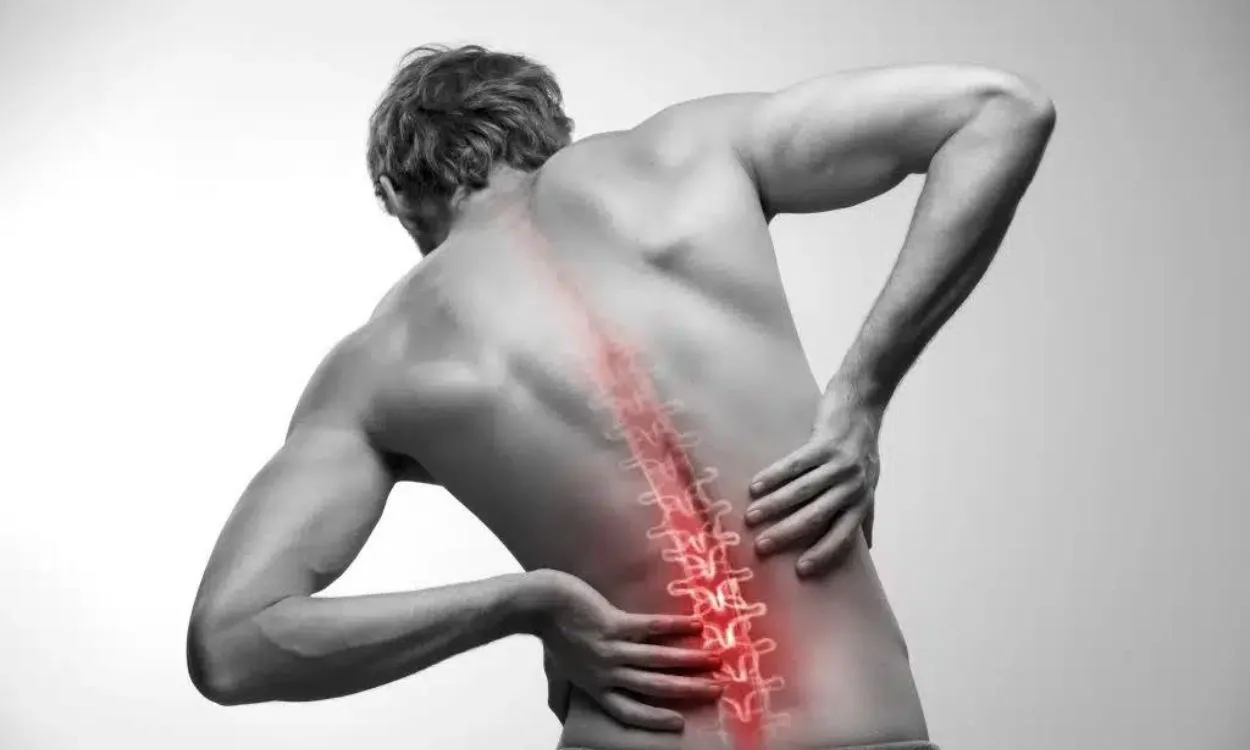The Hidden Culprit: Understanding the Role of Inflammation in Chronic Back Pain
Introduction
Chronic back pain is a debilitating condition affecting millions of people across the globe, including a significant portion of the Indian population. While many factors contribute to this persistent pain, one of the most overlooked yet critical elements is inflammation. In this blog, we’ll delve into the intricate relationship between inflammation and chronic back pain, shedding light on how it affects your body and what you can do to manage it effectively.
What is Inflammation?
Inflammation is the body’s natural response to injury or infection. It involves the immune system releasing chemicals and white blood cells to protect the affected area and facilitate healing. While acute inflammation is a normal and necessary process, chronic inflammation can be harmful, leading to various health issues, including chronic back pain.
How Inflammation Causes Chronic Back Pain
1. Inflammatory Cytokines
Inflammatory cytokines are proteins released by the immune system to regulate inflammation. In chronic back pain, these cytokines can perpetuate a cycle of pain and inflammation, making it difficult for the body to heal. Common inflammatory cytokines involved in chronic back pain include tumor necrosis factor-alpha (TNF-α) and interleukin-1 beta (IL-1β).
2. Neurogenic Inflammation
Neurogenic inflammation occurs when the nervous system releases inflammatory mediators, leading to increased sensitivity and pain. This type of inflammation is common in conditions like sciatica, where nerve irritation contributes to chronic back pain.
3. Autoimmune Responses
In some cases, the immune system mistakenly attacks healthy tissues, causing inflammation and pain. Autoimmune conditions like ankylosing spondylitis and rheumatoid arthritis often involve chronic back pain due to persistent inflammation in the spinal joints.
4. Degenerative Disc Disease
As people age, the discs in the spine can degenerate, leading to inflammation and chronic back pain. The breakdown of these discs releases inflammatory substances that irritate the surrounding nerves and tissues, causing pain and discomfort.
Diagnosing Inflammation in Chronic Back Pain
1. Blood Tests
Blood tests can measure levels of inflammatory markers like C-reactive protein (CRP) and erythrocyte sedimentation rate (ESR). Elevated levels of these markers can indicate chronic inflammation contributing to back pain.
2. Imaging
Imaging techniques like MRI and CT scans can identify signs of inflammation in the spinal structures. These scans can reveal issues like disc degeneration, spinal stenosis, and other conditions associated with chronic back pain.
Managing Inflammation to Relieve Chronic Back Pain
1. Anti-inflammatory Diet
Consuming foods rich in anti-inflammatory properties can help reduce inflammation. Incorporate foods like turmeric, ginger, green leafy vegetables, and omega-3 fatty acids into your diet.
2. Regular Exercise
Engaging in regular, low-impact exercises such as yoga, swimming, and walking can help alleviate chronic back pain by reducing inflammation and improving overall spinal health.
3. Medications
Over-the-counter and prescription anti-inflammatory medications can provide relief from chronic back pain. Nonsteroidal anti-inflammatory drugs (NSAIDs) like ibuprofen and naproxen are commonly used to manage pain and inflammation.
4. Physical Therapy
Physical therapy can help strengthen the muscles supporting the spine, reducing inflammation and alleviating chronic back pain. Techniques like manual therapy, stretching, and strengthening exercises are often employed.
The Fitpaa Solution for Chronic Back Pain
At Fitpaa, we understand the debilitating impact of chronic back pain and the crucial role inflammation plays in it. Our comprehensive, AI-driven health and fitness solutions are designed to address the root causes of your pain and provide lasting relief.
Step 1: Metabolism Assessment
Our advanced metabolism assessment identifies the underlying causes of your chronic back pain, including inflammation. This personalized assessment allows us to tailor a treatment plan specifically for you.
Step 2: Personalized Fitpaa Capsule
Based on your metabolism assessment, our expert team of fitness coaches, nutritionists, and doctors will create a personalized Fitpaa Capsule. This all-in-one health and fitness plan includes medical therapy, medical exercise therapy, medical nutrition therapy, and cognitive behavior therapy to optimize your metabolism and reduce inflammation.
Step 3: Daily Guidance and Support
The Fitpaa app provides real-time guidance, habit-building tools, and purpose-finding techniques to help you follow your Fitpaa Capsule effectively. Our digital therapeutic solutions ensure you stay on track and achieve your health and fitness goals, including relieving chronic back pain.
Why Choose Fitpaa?
1. Guaranteed Results
With Fitpaa, you get a 100% guarantee on achieving your health and fitness goals. Our tailored plans and expert support ensure you find relief from chronic back pain and improve your overall well-being.
2. Comprehensive Support
Our team of fitness planners, nutritionists, fitness trainers, and doctors provide continuous support, including unlimited consultations, daily follow-ups, and weekly reviews. We are committed to helping you every step of the way.
3. Risk-Free Trial
Experience the benefits of Fitpaa with a 7-day risk-free trial. If you’re not satisfied, you can cancel anytime within the trial period and receive a full refund.
Conclusion
Chronic back pain can significantly impact your quality of life, but understanding the role of inflammation can help you take control of your health. With Fitpaa’s comprehensive and personalized approach, you can effectively manage inflammation and achieve lasting relief from chronic back pain. Download the Fitpaa app today and embark on your journey towards a pain-free and healthier life. Your well-being is our mission, and we promise to work tirelessly to help you achieve your goals.









